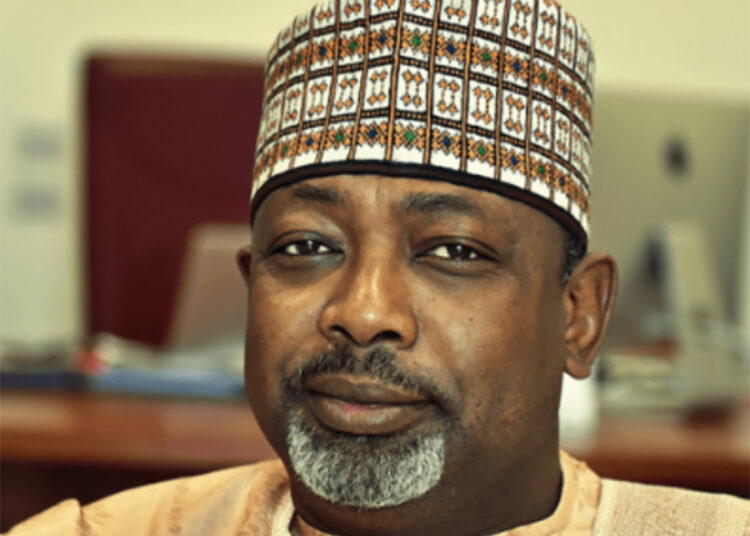Key players in Nigeria’s agricultural sector have called on the federal and state governments to increase agricultural funding to at least 10 per cent of the national budget, in line with the Maputo and Malabo Declarations, to effectively tackle rising food insecurity and strengthen the country’s food systems.
This resolution emerged from a high-level National Stakeholders Consultative Meeting on the 2026 Agriculture Budget, held in Lagos, on Thursday.
The three-day meeting, convened by ActionAid Nigeria, the Federal Ministry of Budget and Economic Planning (FMBEP), the Federal Ministry of Agriculture and Food Security (FMAFS), GIZ Global Programme Nigeria, the Community of Agricultural Non-State Actors (COANSA), and the Department of Agriculture & Rural Development of the ECOWAS Commission, brought together 139 stakeholders, including legislators, budget officers, civil society groups, farmers’ organizations, development partners, and ministry officials.
The meeting aimed to assess Nigeria’s 2025 agricultural financing, the implementation of the National Agricultural Technology and Innovation Policy (NATIP), and alignment with continental commitments such as the Comprehensive Africa Agriculture Development Programme (CAADP) and the 2025 Kampala Declaration on resilient food systems.
The stakeholders decried that Nigeria’s agricultural budget allocation dropped to 1.2 per cent in 2025, far below the 10 per cent Maputo benchmark while over 45 per cent of perishable produce is constantly lost due to lack of storage and poor market infrastructure.
The National secretary of the Small-Scale Women Farmers Organisation in Nigeria (SWOFON), Chinasa Asonye, decried the consistent underfunding of women in agriculture, stating: “Despite the 35 per cent gender allocation mandate in the National Agricultural Gender Policy, actual releases are negligible. Women farmers remain sidelined, even though they constitute the majority in rural food production.”
Among the many issues raised were insecurity in farming regions, depleting soil fertility, inadequate infrastructure to curb post-harvest losses, climate change, and delays in the release of approved funds. According to the stakeholders, about 30.6 million Nigerians in 26 states, including the FCT, are projected to face acute food insecurity between June and August 2025.
Country director at ActionAid Nigeria, Andrew Mamedu, emphasised the urgent need for a paradigm shift in agricultural governance. “We must stop treating agriculture as a poverty-alleviation programme and start funding it like the national security emergency that it is. The delayed capital releases, inconsistent funding, and limited subnational participation are eroding public confidence and threatening national stability,” Mamedu stated.
Chairperson of COANSA, Rosemary Effiong called for more inclusive and data-driven policy planning, stating that, “Budget planning must reflect the voices and realities of those at the grassroots. We need disaggregated data, strong monitoring systems, and active participation of women, youth, and persons with disabilities in every step of the value chain.”
The permanent secretary of the Ondo State Ministry of Agriculture, Foluke Daramola, noted that without strong subnational commitment and capacity building, federal initiatives would fail to deliver sustainable results. “States need autonomy and resources to customize programmes that fit their unique agro-ecological realities,” he stated.
Stakeholders criticised the tokenistic inclusion of youths and persons with disabilities in agriculture budgets, adding that, “We demand targeted funding and active roles in innovation hubs, youth cooperatives, and agri-preneurial ecosystems. The future of farming depends on us.”
Other major observations from the forum include, Nigeria’s agricultural budget allocation dropped to 1.2 per cent in 2025, far below the 10 per cent Maputo benchmark, Over 45 per cent of perishable produce is lost due to lack of storage and poor market infrastructure; Pest outbreaks like armyworm and Tomato Ebola continue to ravage yields with insufficient national response and women, youths, and PWDs face systemic exclusion from land access, financing, and agricultural innovation.
Key Recommendations from the consultative meeting include a presidential-led strategic oversight mechanism to prioritise agriculture; Decentralized security response to protect rural farming zones; Establishment of a digital, transparent, and public monitoring system for all agricultural disbursements; Dedicated budget lines for women (35 per cent), youth and PWDs (15 per cent), with 50 per cent youth interventions targeting young women; Aggressive support for climate-smart agriculture, hybrid pasture development to mitigate herder-farmer conflict, and agroecological investment and institutional reforms to leverage existing public assets like River Basin Development Authorities and Agricultural Research Institutes.
Next steps include high-level advocacy visits by ActionAid Nigeria, the ministers of Budget and Agriculture, and the legislative chairs to President Bola Tinubu and the Minister of Finance. A shadow budget and advisory notes developed during the meeting will also be submitted to relevant agencies and committees for further action.











